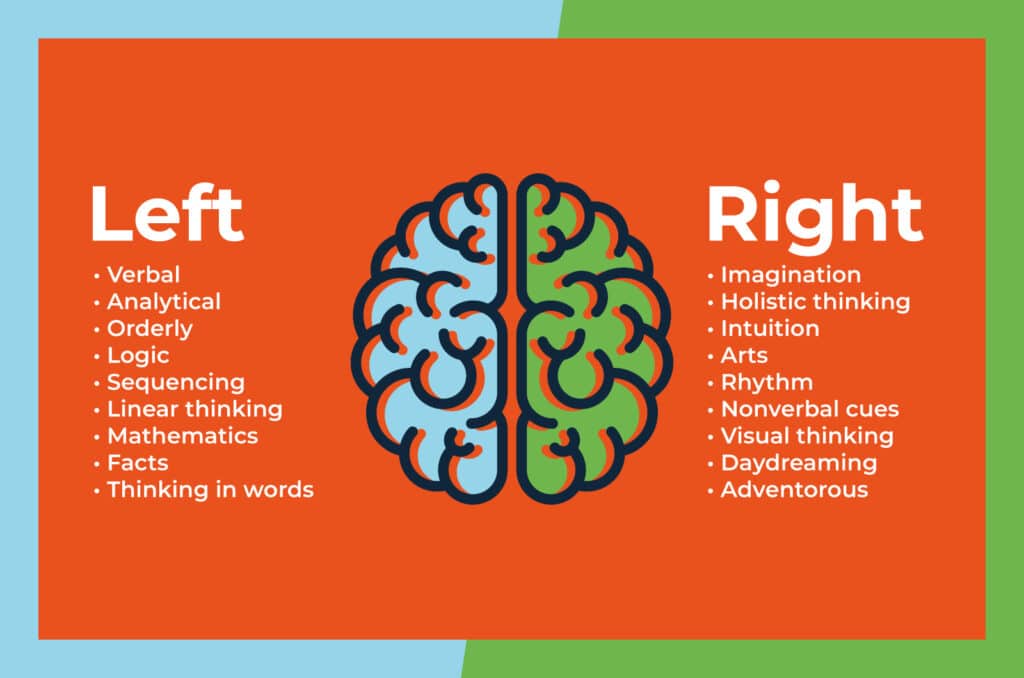In England, most students will choose nine or ten GCSE topics when they are around 13 or 14 years old. These are then studied over the next two years. Some academically advanced and ambitious students may take eleven or twelve GCSEs at a time.
Why does this matter? Well, it depends on what career you have in mind. Universities sometimes favour students who have a wide range of subjects as this shows they are well-rounded learners. When you choose your subjects, you’re shaping the beginning of your education, but also the direction of your life. They’re the starting point for further learning.

For mature students looking to retake GCSEs later in life, picking their subjects is usually based on whether they need to achieve better grades, or study a different subject to meet the requirements of a new career. Most further education courses and jobs require you to have grades between 9 and 4 (or A* and C, if you’re used to the old grading system) in a minimum of five subjects. So, whether you’re in school, or an adult returning to learning, it's important to pick the right courses that you can both do well in, and use in the future. This guide to choosing GCSE subjects will give you the most relevant advice for ambitious students like you!
10 tips for choosing your GCSE subjects
1) Figure out which subjects are compulsory
In the UK, there are ‘core’ and ‘foundation’ subjects that all key stage 4 students must take. GCSE Maths, English, and science are the core subjects, and IT/computing, physical education, and citizenship are the foundations. In some cases, science can be split into two or three subjects, biology, chemistry, and physics, depending on the student's ability. From there, most students will choose three or four optional courses based on their personal interests and further education plans, like geography or history, for example, or even ancient language. It is also worth looking at an IGCSE - learn about the differences between the two in this article.
Some of the other common GCSE subjects you may want to explore include sociology, psychology, and business, though these don't fall into the compulsory category.
2) Find out what options you have
The four types of GCSE that all schools must offer at least one subject in are:
- Modern foreign languages. Generally, schools will offer the most popular courses, such as French, German, and Spanish, though some schools might teach more complex languages, such as Mandarin and Russian. You should check whether taking a language GCSE is compulsory at your school, too.
- Humanity subjects. This covers history, geography, religious studies, and the social sciences such as psychology and sociology.
- Artistic subjects. These include music, drama, art and design, and media studies.
- Technical subjects. This could be design and technology, food technology, and computer science.
Some students have the option to choose a work-related qualification, and these are usually new subjects that are not studied at key stage three, for example, health and social care or business studies. Draw up a list of GCSE subjects alongside other paths and identify the ones that appeal to you and your hopes for further study.
3) Focus on your passions and aspirations

Gaining a qualification in a subject that you don’t enjoy is of no use to you if it means your grades suffer as a result. What’s more, if you’re not passionate about the subject, chances are, you’re not going to follow that path in the future. Learning should be a propellor for your personal development and career aspirations, so the most important thing you can do is pick the subjects that you’re interested in! What fuels your curiosity? What motivates you? What ideas and concepts are you fascinated by? It doesn’t matter if you’re not sure what type of work you desire, as long as you understand that certain subjects are pathways into certain industries. For example, if you know you like being around people and think you could work in the social sector, taking a humanities subject, like sociology or psychology, alongside a modern language, such as French, would be useful.
4) Think of good subject combinations and strike a balance
Now, whilst we just said you should pick the subjects you like, it’s also important to strike a balance between ‘soft’ and ‘hard’ subjects, so that universities can see how varied your abilities are. A ‘hard’ subject is another way of describing what’s called a facilitating subject – those preferred by universities when applying for a range of degrees. This includes core subjects like maths and English, but also the three natural sciences, modern foreign languages, and things like economics and politics. ‘Soft’ subjects are generally more hands-on, practical, or vocational, for example, photography, media studies, art and design, drama, and the social sciences. Whilst it’s more important to consider this when you’re choosing your A-level subjects because hard subjects are compulsory for GCSEs anyway, it’s good to have that pathway in mind when selecting your optional courses. A balance between technical, academic, and practical subjects demonstrates that you’re a well-rounded learner. And don't just go for the easiest GCSEs, as these may not be what you need to fulfil your true ambitions.
5) Review your skillset and strengths

Do you feel confident solving problems and equations? Or do you feel more comfortable communicating ideas? Studies have shown that we often use one side of the brain more than the other, and those considered ‘left-brained’ tend to be more logical. Whilst people who are ‘right-brained’ are more creative. However, that’s not to say that you can’t train the brain to use both these skills efficiently. It simply indicates what style of thinking you’re more naturally dominant in. You can do a fun test here to find out! Knowing your strengths and learning styles will help when thinking about the subjects you’d be good at.
You should also research how different subjects are marked, and ask yourself, ‘Is this GCSE largely coursework-based, or exam-focused?' If you’re the type of person who performs better under pressure, a subject marked solely under exam conditions might suit your skillset well. However, most students prefer subjects that have a mix of graded coursework and exams, so they can spend longer working on their assignments. You can also take practice papers at any time to give you an idea of what you will need to know.
6) Seek guidance from a careers adviser
We know, we know. If you’re in year nine, or even year eight, then you’re still very young to be thinking about what job you want. And the fact is that throughout life, most adults switch jobs every five years on average anyway. So, we’re not suggesting that you need to have it all figured out, or that what you decide is set in stone. However, it’s good to know your options so you can get a feel for the kind of work you might be interested in.

A careers adviser can assess your interests, skills, and goals, and help you decide what the most relevant subjects would be for you. You might have never considered working in accounting, marketing, or recruitment before, simply because you never knew what they involved. The best thing to do at this stage is to learn about and consider all possibilities so that you can narrow down the GCSEs that keep your options open. We can also talk you through the recent changes to grade boundaries and what they mean. For friendly career guidance, we can book you in for a free chat with one of our course advisers.
If you’re a mature student returning to education to re-take your GCSEs, we’re pretty sure you already have a career path in mind. However, you might not know exactly what qualifications you need to get there. A quick chat with us will help to point you in the right direction and help you get the GCSE results you need.
7) Don’t be influenced by others
If you’re still at school, it's easy to be tempted by the subjects your friends have chosen, so you can be in the same classes. But whilst school is a social environment, classrooms are for learning! So, whether the GCSEs you pick are popular or not, they will have a huge impact on your future and your friends should have no influence on your decision. On top of that, don’t let your parents tell you what courses to study either. You’re the one who has to spend two years learning about the subject, and it’s your life that it will impact in the long run.
8) Plan a realistic schedule that you can keep up with
Some subjects will clash on a school timetable, so you need to check if you can make all the classes for the subjects you’ve chosen. Say you’re taking triple science as well as all the core subjects, and you’ve chosen four other GCSEs, you’ll have twelve different classes to attend across the week. Make sure it’s doable and achievable; you don’t want to be feeling stressed because you took on too many subjects or you’re having to catch up with missed classes. If you’re going to be online learning, be sure to plan a schedule that fits alongside your other commitments. Plan a timetable that isn’t too overwhelming but realistic to achieve the recommended study hours per course.
Exam dates for each course should also be part of your forward thinking. Find out when the first exam is, for example, and start putting together your exam timetable so that you leave yourself enough time to fully prepare and study. Remember, GCSE exams take place in both the winter and summer terms, and you should also make a note of when your mock exams take place.
9) Think about how your GCSEs will complement your A-level choices
Some A-level courses will require you to have already achieved the same subject at GCSE level so that you have the foundation knowledge to develop upon. For example, universities often value students who study A-level languages, such as French, but you’d need French GCSE first – that's if the subject is not your first language. Keep in mind that you may also need to get a particular grade if you want to pursue the subject at A-level.
10) Understand that nothing is final, and you can still gain further GCSEs later in life
If there’s one thing we know as an online college, it’s that learning is lifelong! You can study your GCSEs, go on to achieve A-levels, go to university, and be happy in your job for ten years until you decide you want to become a nurse and you didn’t get a good enough maths GCSE to begin training. So, you find a course and you commit to studying again. Life will take you on many unexpected journeys, but education will only ever propel you forward. Therefore, remember, nothing is final, and whilst the GCSEs you choose are important, they’re not your only chance at success. Enjoy the ride.
We hope our guide to choosing GCSE subjects helped you figure out what courses are right for you. We work alongside all the main UK exam boards so you can be sure you're learning from the latest syllabus, ready for the exams. Find out more about our wide range of GCSEs and A-levels on our website, or you can give our dedicated team a call on 0121 630 3000.
